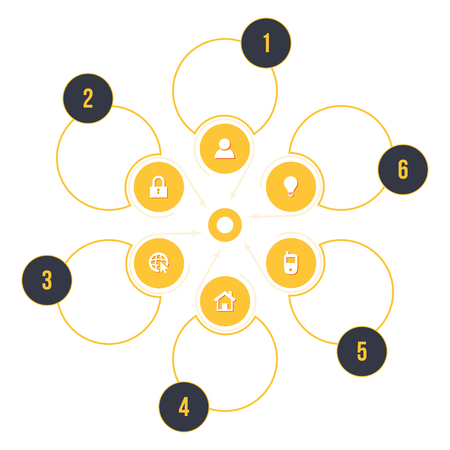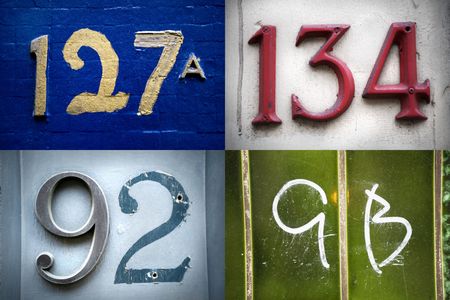Introduction to British Popular Culture and Spiritualism
British popular culture has long been intertwined with the mystical, the unexplained, and the spiritual. From Victorian parlours hosting séances to contemporary television programmes exploring haunted locations, the fascination with psychic phenomena is deeply rooted in the British psyche. The United Kingdom’s relationship with spiritualism can be traced back to the 19th century, when the rise of the Spiritualist movement coincided with significant social and scientific upheaval. During this period, interest in contacting the spirit world grew as a response to rapid industrialisation, religious questioning, and changing societal norms. Key movements such as the founding of The Spiritualists’ National Union in 1890 helped formalise psychic practices, while literary figures like Arthur Conan Doyle championed mediumship and related beliefs. Over time, these historical threads have woven themselves into modern British culture, influencing everything from literature and film to social attitudes towards psychic practitioners. This longstanding relationship between popular culture and spiritualism continues to shape contemporary approaches to psychic practices across the UK.
2. Victorian Roots: The Birth of Modern Psychic Practices
The Victorian era marked a turning point for psychic practices in Britain, laying foundations that still shape the modern landscape. During this period, public interest in the supernatural grew rapidly, fuelled by scientific advancements and shifting religious attitudes. The rise of spiritualism saw the emergence of mediums, séances, and organised societies devoted to investigating the afterlife. Middle- and upper-class parlours became sites of both entertainment and genuine inquiry as families gathered for séances, hoping to communicate with departed loved ones. Mediums—often women—played central roles, using techniques such as table-turning, automatic writing, and trance-speaking to channel spirits. These activities were not merely fringe amusements but became embedded in mainstream society, prompting debates in newspapers and scientific circles alike.
| Victorian Practice | Description | Modern Legacy |
|---|---|---|
| Séances | Gatherings to contact spirits through a medium | Continued popularity in private and public settings |
| Spiritualist Societies | Organisations formed to study psychic phenomena | Current psychic associations trace roots here |
| Mediumship | Individuals claiming to relay messages from the dead | Mainstay of contemporary psychic readings |
The legacy of Victorian spiritualism is evident in the cultural norms surrounding today’s psychic practices in Britain. Notions of respectability and methodical investigation—originally cultivated to counter accusations of fraud—still persist. Terms such as “circle” or “sitting” are part of British popular lexicon thanks to their Victorian origins. Moreover, the balance between scepticism and belief that typified Victorian society continues to inform how Britons engage with psychic practices: with a blend of curiosity, critical thinking, and an enduring sense of wonder.

3. The Role of British Media in Shaping Psychic Trends
The British media landscape—encompassing newspapers, television, and radio—has played a crucial role in both reflecting and shaping the nations fascination with psychic phenomena. Historically, tabloid newspapers such as The Sun and The Daily Mirror have given considerable column space to horoscopes, celebrity psychics, and tales of supernatural encounters. These stories often blend sensationalism with entertainment, capturing the public imagination and subtly normalising psychic practices within everyday life.
Television has arguably been even more influential. From the late 20th century onwards, programmes like “Most Haunted” and “Psychic Sally: On the Road” brought psychic readings, ghost hunts, and mediumship directly into British living rooms. These shows not only demystified certain practices but also contributed to their mainstream appeal by framing them as accessible sources of comfort or adventure. The personalities featured became household names, further embedding psychic culture in the national consciousness.
Radio, too, has provided a unique platform for discussion and debate. Long-running call-in segments on stations such as BBC Radio 2 have enabled listeners to share personal experiences or seek live advice from resident psychics. This interactive format fosters a sense of community around psychic topics while allowing scepticism and belief to coexist in public discourse.
In summary, British media outlets have acted both as amplifiers and gatekeepers for psychic trends. By consistently featuring psychic content—whether for entertainment or serious exploration—they have shaped public perception, making psychic practices seem simultaneously familiar and intriguing within UK popular culture.
4. Folk Traditions and Regional Beliefs
The landscape of British psychic practices is deeply rooted in the country’s diverse folk traditions and regional beliefs. Across England, Scotland, Wales, and Northern Ireland, a rich tapestry of local customs, superstitions, and folk magic has shaped how modern psychics operate and are perceived today. These traditions not only provide a historical foundation but also offer distinctive practices that continue to inform contemporary psychic work.
Local Customs: A Regional Overview
Each region in the UK boasts its own unique set of folk beliefs, often tied to the land, seasons, and community rituals. For example, English counties such as Cornwall and Yorkshire have longstanding traditions involving charms and protective talismans. In Scotland, the belief in “second sight” (an ability to foresee future events) remains a celebrated part of Highland culture. Welsh folklore centres around omens, fairy lore, and spirit communication, while Irish traditions often blend ancient Celtic mysticism with Christian motifs.
Common Superstitions and Psychic Adaptations
Modern psychic practitioners frequently draw upon these regional superstitions, adapting them for contemporary audiences. Table 1 outlines some notable examples:
| Region | Traditional Belief/Superstition | Modern Psychic Practice |
|---|---|---|
| Cornwall | Piskies (fairy folk) causing mischief; use of ‘witch bottles’ for protection | Protection rituals using bottles or charms; spirit communication invoking nature spirits |
| Scotland | The ‘second sight’ or prophetic visions among Highlanders | Clairvoyant readings emphasising ancestral connections and Scottish heritage |
| Wales | Banshee warnings; belief in fairies and omens from animals | Ancestral mediumship sessions; divination using animal symbolism |
| Northern Ireland | May Day rituals for good fortune; warding off evil spirits with rowan branches | Seasonal psychic ceremonies; use of traditional botanicals in energy cleansing |
The Enduring Influence on Modern Practice
This interplay between local tradition and modernity is more than nostalgic homage—it’s an active process of reinterpretation. Many psychics intentionally reference folk magic or local legend in their branding and sessions, forging a sense of authenticity that appeals to clients seeking both spiritual insight and cultural continuity. In doing so, they bridge the gap between ancient superstition and twenty-first-century curiosity, ensuring that Britain’s regional beliefs remain alive within the evolving landscape of psychic practice.
5. Contemporary British Psychic Practitioners
In the landscape of modern psychic practices, the UK stands out for its unique blend of tradition, celebrity culture, and digital innovation. Today’s British psychic practitioners often draw from a deep well of local folklore and historical spiritualism, yet they are equally shaped by popular media and evolving cultural attitudes. A notable trend is the rise of psychics who operate as public personalities—figures such as Sally Morgan and Derek Acorah have achieved celebrity status through television appearances, live tours, and bestselling books. Their personas are marked by distinctly British sensibilities: dry wit, understated confidence, and a tendency to frame psychic experiences within familiar cultural references.
The business side of psychic practice in the UK is also influenced by national trends. Many practitioners run boutique consultancies in cities like London, Manchester, and Edinburgh, offering services ranging from tarot readings to mediumship sessions tailored to contemporary concerns. Online platforms have expanded their reach further; it is not uncommon to find British psychics hosting livestreams or podcasts that blend traditional readings with discussions about current events or pop culture phenomena. Interestingly, British psychic businesses often emphasise ethical codes and transparency—reflecting wider social values such as scepticism towards charlatanism and an emphasis on personal responsibility.
Culturally specific practices persist as well: tea leaf reading (tasseography), for example, remains a popular choice at psychic fairs and among practitioners who wish to preserve a sense of heritage. There is also a growing interest in blending modern psychological insights with intuitive guidance—a uniquely British approach that seeks to demystify the psychic arts while maintaining their allure. Ultimately, today’s UK psychic scene is defined by a mix of reverence for tradition and openness to innovation, continually shaped by the ebb and flow of British popular culture.
6. Public Perception and Social Attitudes in the UK
In contemporary Britain, public perception of psychic practices is shaped by a complex interplay of cultural history, popular media, and evolving social attitudes. The influence of British popular culture has undeniably brought psychic themes into mainstream conversation, yet the prevailing attitudes among the British public remain varied and nuanced.
Scepticism: A Hallmark of British Rationalism
Scepticism towards psychic phenomena is deeply embedded in British society, often reflecting the nation’s longstanding tradition of rationalism and scientific inquiry. Public opinion polls regularly indicate that while a significant minority express curiosity or mild belief in psychic abilities, a much larger proportion approach such practices with critical scrutiny. Media representations—ranging from investigative documentaries to satirical comedies—frequently reinforce this sceptical stance, portraying psychics as either entertainers or subjects for debunking.
Acceptance and Popular Engagement
Despite widespread scepticism, there remains a notable undercurrent of acceptance and engagement with psychic practices across the UK. This is particularly evident in the popularity of television shows featuring mediums, tarot readers at local fairs, and the continued presence of spiritualist churches. For some Britons, psychic consultations offer comfort or entertainment rather than strictly spiritual guidance. The normalisation of these experiences through popular culture has softened outright hostility, leading to greater tolerance even among non-believers.
Regulation and Consumer Protection
The ambiguous status of psychic practices in the UK has prompted both legislative attention and self-regulation within the industry. The Consumer Protection from Unfair Trading Regulations 2008 plays a significant role in governing how psychic services are advertised and delivered, ensuring that vulnerable individuals are not misled by extravagant claims. Meanwhile, professional associations have introduced codes of conduct to further legitimise their members’ work. This regulatory landscape reflects a pragmatic British approach: allowing freedom of expression while safeguarding public interests.
Balancing Tradition and Modernity
British attitudes towards psychic practices are ultimately shaped by an ongoing negotiation between tradition and modernity. While historical fascination endures—often romanticised in literature and folklore—the demand for empirical evidence continues to inform public discourse. This duality ensures that psychic practices maintain a visible yet contested place within British culture, influenced both by enduring scepticism and by the persistent allure fostered through popular media.
7. Conclusion: Lasting Legacy and Future Directions
In summary, the enduring influence of British popular culture on modern psychic practices is both profound and multifaceted. From the spiritualist movements of the Victorian era to the rise of psychic television programmes and contemporary social media trends, British society has consistently shaped the public’s perception of psychic phenomena. Popular culture has not only provided a platform for psychics to reach new audiences but has also encouraged critical debate, creativity, and even healthy scepticism. As we look ahead, it is clear that psychic practices in Britain will continue to evolve alongside shifts in media, technology, and societal attitudes. The blending of tradition with innovation—whether through immersive experiences, digital readings, or collaborative events—suggests that the British approach to psychic exploration remains as dynamic as ever. Future directions may see an increased emphasis on ethical standards, community engagement, and a deeper integration with wellness culture. Ultimately, the legacy of British popular culture ensures that psychic practices will remain a relevant and intriguing facet of contemporary life in the UK.

